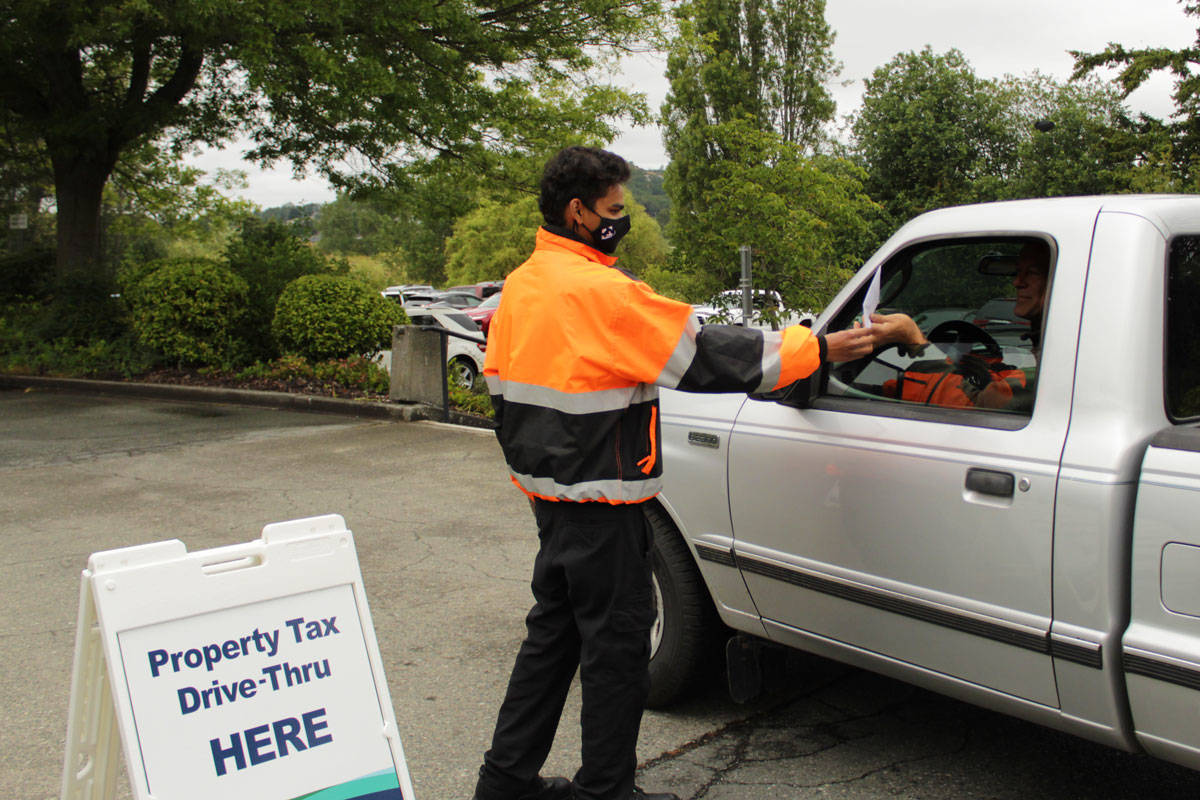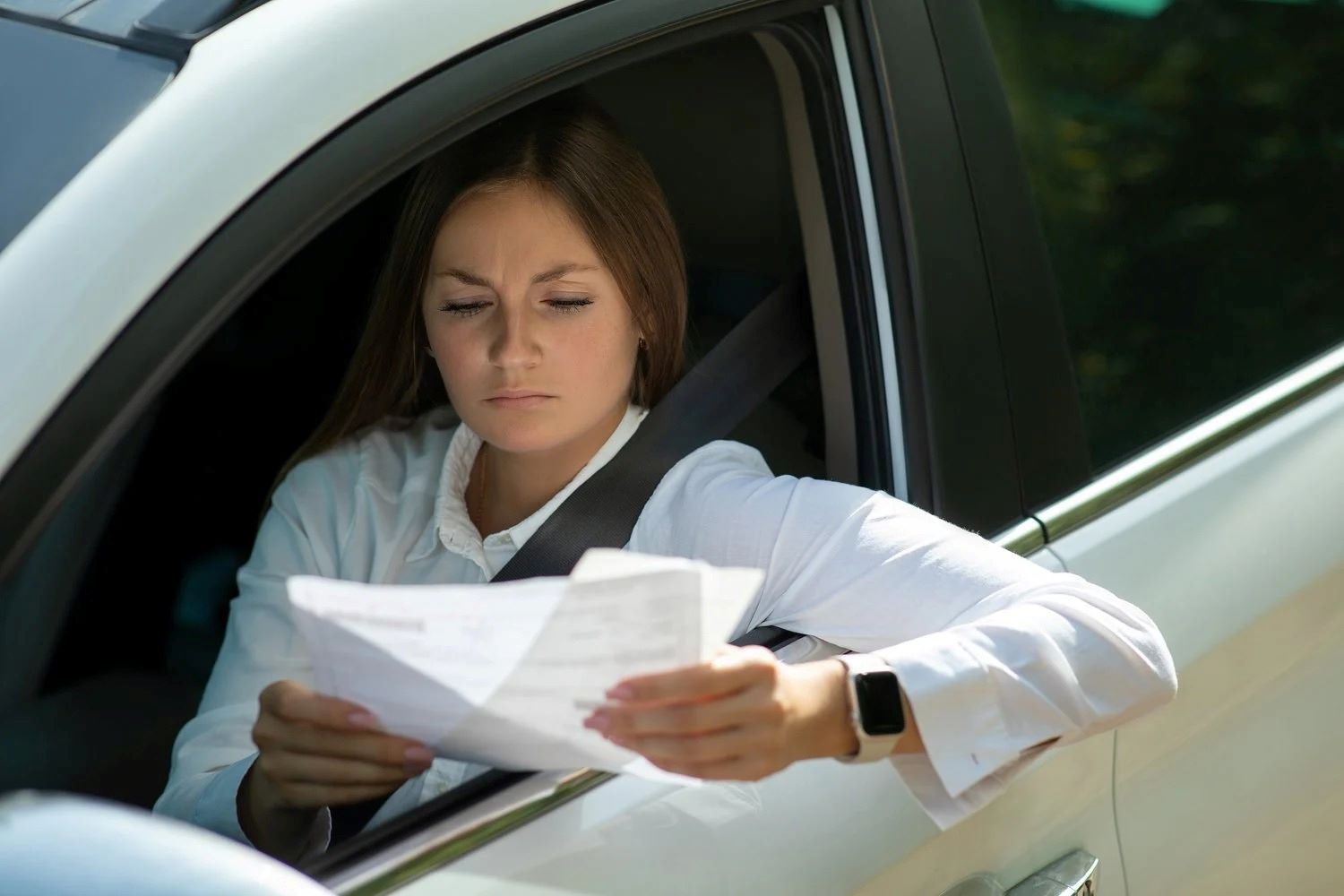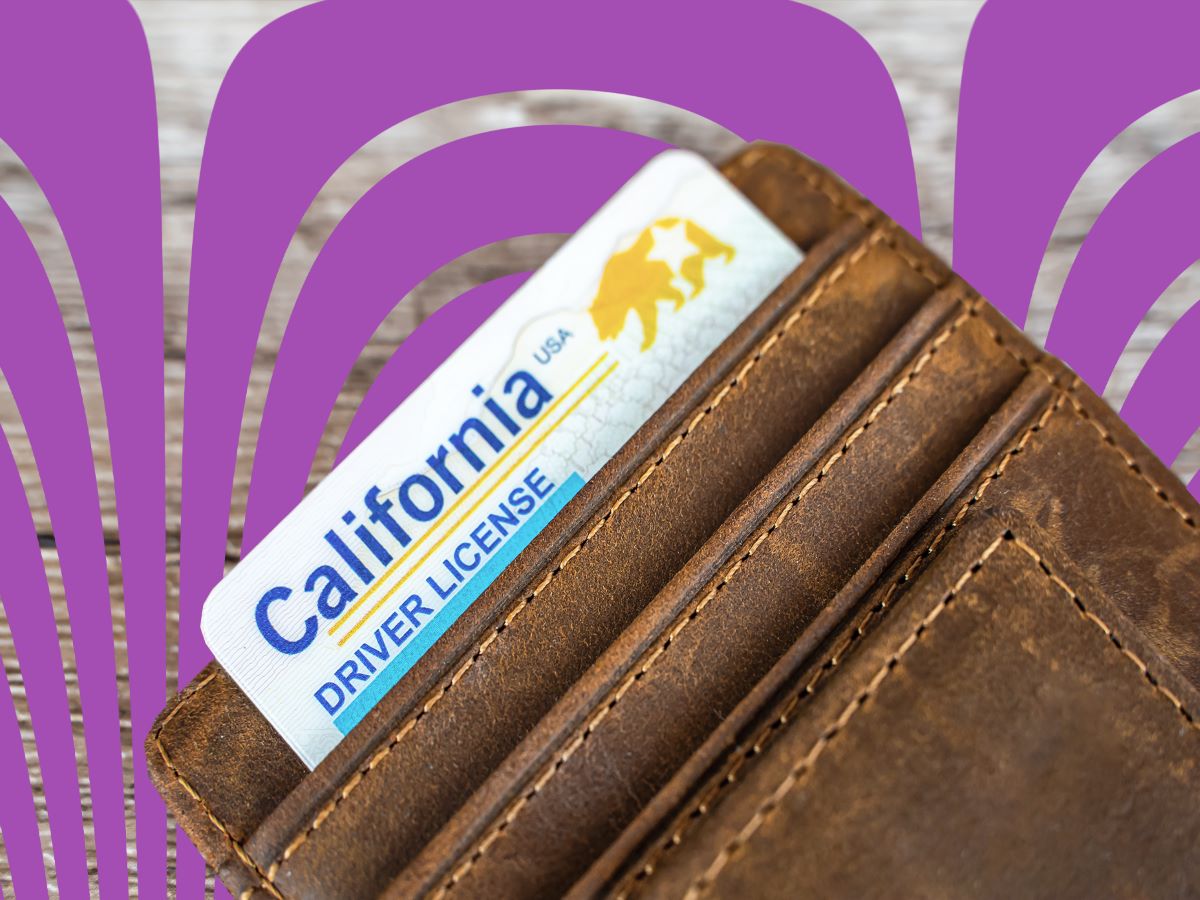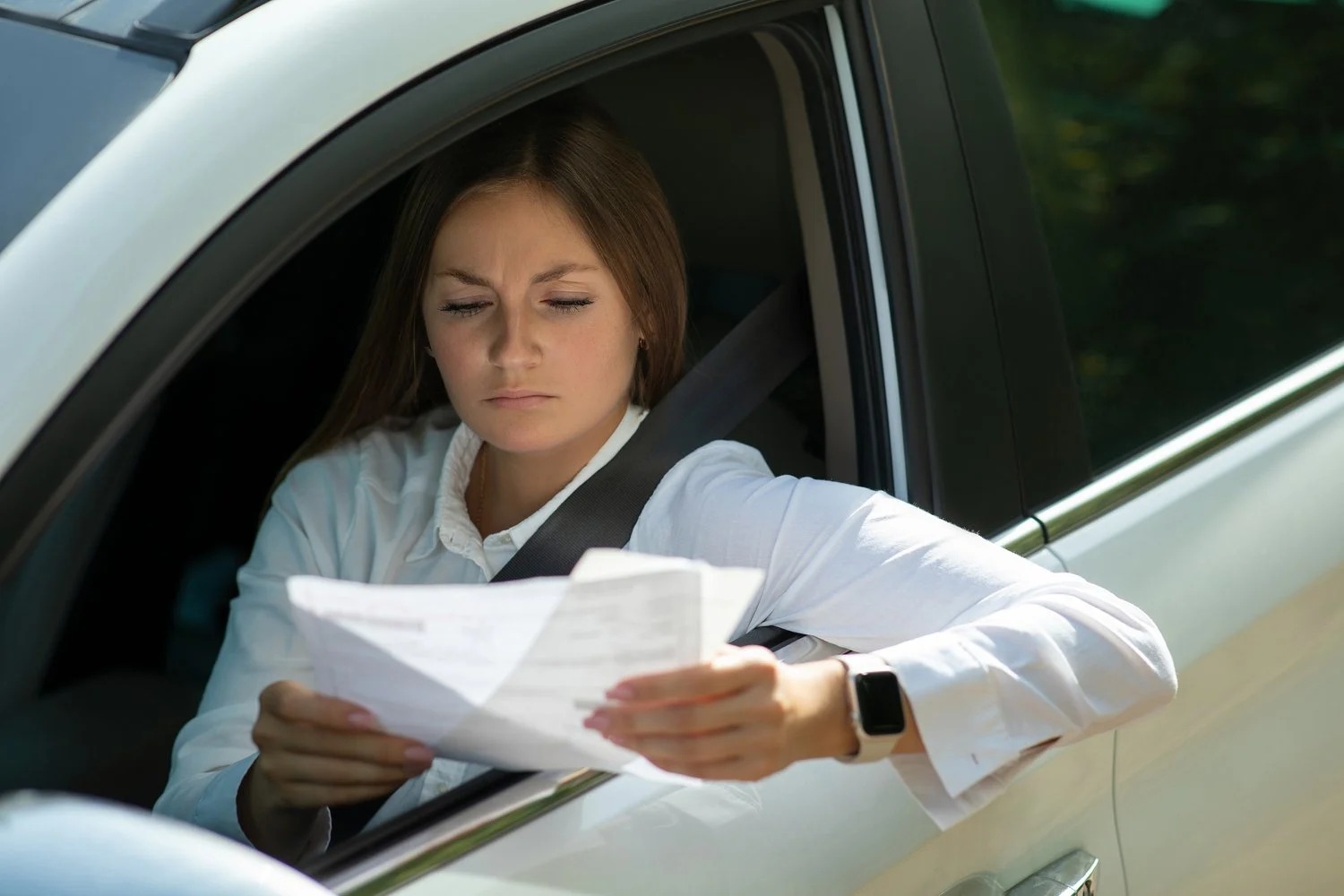Home>Finance>Is There A Late Fee When You Pay Your Car Property Tax Late


Finance
Is There A Late Fee When You Pay Your Car Property Tax Late
Published: February 23, 2024
Avoid late fees on car property tax with timely payments. Learn about the consequences of paying late and how to manage your finances effectively. Discover tips to avoid penalties and stay on top of your finances.
(Many of the links in this article redirect to a specific reviewed product. Your purchase of these products through affiliate links helps to generate commission for LiveWell, at no extra cost. Learn more)
Table of Contents
Introduction
Understanding Car Property Tax
Car property tax is a levy imposed on the value of a vehicle by a state or local government. It is an annual tax that vehicle owners are required to pay, with the amount typically based on the assessed value of the car. This tax is separate from the registration fees and is often due at the same time as the vehicle's registration renewal.
In some states, the car property tax is also known as a vehicle excise tax or ad valorem tax. The funds generated from this tax are used to support various public services and infrastructure projects, such as road maintenance and public safety initiatives.
Car property tax laws and regulations vary by state, and the specific details regarding assessment methods, rates, and payment deadlines can differ significantly. It's essential for vehicle owners to understand their state's car property tax requirements to ensure compliance and avoid potential penalties for late payment.
Understanding the nuances of car property tax and the implications of late payments is crucial for all vehicle owners. In the following sections, we will delve deeper into the consequences of late payment, the assessment of late fees, potential exceptions and waivers, and other essential considerations related to car property tax.
Understanding Car Property Tax
Understanding Car Property Tax
Car property tax, also known as a vehicle excise tax or ad valorem tax in some regions, is an annual levy imposed on the value of a vehicle by state or local governments. The amount of tax owed is typically based on the assessed value of the car and varies depending on the specific regulations of the state or locality. This tax is distinct from registration fees and is often due at the same time as the vehicle’s registration renewal.
The revenue generated from car property taxes contributes to funding various public services and infrastructure projects, including road maintenance, public safety initiatives, and other essential municipal or state-level programs. The specific allocation of these funds may vary by jurisdiction.
It’s important for vehicle owners to understand the car property tax laws and regulations in their respective states to ensure compliance and avoid potential penalties. Assessment methods, tax rates, and payment deadlines can differ significantly from one location to another, making it crucial for individuals to stay informed about their obligations regarding this tax.
When it comes to determining the assessed value of a vehicle for tax purposes, states may use different approaches. Some states assess the value based on the vehicle’s market value, while others utilize a percentage of the Manufacturer’s Suggested Retail Price (MSRP) or the vehicle’s age, weight, or other factors. Understanding how the assessed value is calculated is essential for vehicle owners to accurately anticipate and fulfill their tax obligations.
Furthermore, car property tax requirements may vary based on the type of vehicle. For example, regulations for passenger cars, motorcycles, commercial vehicles, and other specialized vehicles may differ, necessitating a comprehensive understanding of the specific tax implications for each vehicle category.
By gaining a thorough understanding of car property tax and its associated requirements, vehicle owners can effectively navigate their tax responsibilities and ensure timely compliance.
Consequences of Late Payment
Consequences of Late Payment
Failure to pay car property tax on time can lead to a range of consequences that may impact vehicle owners both financially and legally. Understanding these potential repercussions is crucial for maintaining compliance and avoiding unnecessary complications.
One of the primary consequences of late payment is the imposition of penalties or late fees by the relevant taxing authority. These fees can accrue daily, weekly, or monthly, depending on the specific regulations in place. The accumulation of late fees can significantly increase the overall amount owed, placing an additional financial burden on the vehicle owner.
Moreover, delinquent car property tax payments can result in the suspension of vehicle registration or the inability to renew the registration until the outstanding tax obligations are satisfied. This can hinder the legal operation of the vehicle and may lead to further penalties or fines if the vehicle is driven with a suspended registration.
Additionally, some jurisdictions may initiate collection actions, including the placement of liens on the vehicle, to secure the unpaid tax amounts. This can impact the owner’s ability to sell or transfer the vehicle until the delinquent taxes, along with any associated fees and interest, are fully settled.
Furthermore, prolonged nonpayment of car property tax can result in legal actions, such as civil penalties, asset seizure, or even the initiation of foreclosure proceedings in extreme cases. These legal ramifications underscore the seriousness of timely tax compliance and the potential long-term implications of neglecting tax obligations.
Understanding the consequences of late payment is essential for vehicle owners to proactively address any outstanding tax liabilities and prevent the escalation of penalties and legal complications. By staying informed about the potential impacts of delinquent tax payments, individuals can take the necessary steps to fulfill their obligations and maintain compliance with car property tax requirements.
Late Fee Assessment
Late Fee Assessment
When car property taxes are not paid by the specified due date, taxing authorities often impose late fees as a form of penalty for the delinquency. These late fees are intended to incentivize timely payments and discourage noncompliance with tax obligations.
The assessment of late fees for overdue car property tax payments can vary based on the regulations of the relevant jurisdiction. Typically, late fees are calculated as a percentage of the unpaid tax amount, with the specific percentage determined by the governing authority. In some cases, late fees may accrue on a daily, weekly, or monthly basis, compounding the total amount owed over time.
It’s important for vehicle owners to be aware of the potential late fees associated with delinquent car property tax payments, as these fees can significantly inflate the overall tax liability. By understanding the specific late fee assessment methods and rates applicable in their respective locations, individuals can make informed decisions regarding the timely fulfillment of their tax obligations.
Moreover, some taxing authorities may provide grace periods or leniency for first-time late payments, allowing vehicle owners to rectify the delinquency without incurring excessively punitive late fees. However, these grace periods and exceptions are contingent on the specific policies and discretion of the taxing authority, making it essential for individuals to proactively address any late payments to minimize the financial impact.
In cases where late fees have been assessed due to overdue car property tax payments, it’s advisable for vehicle owners to promptly settle the outstanding tax amounts, including any associated late fees, to mitigate the escalation of financial penalties and potential legal repercussions. Timely resolution of delinquent tax payments can help prevent further financial strain and ensure continued compliance with tax requirements.
Understanding the assessment and implications of late fees for overdue car property tax payments empowers vehicle owners to take proactive measures to address delinquencies and minimize the financial and legal consequences associated with late payments.
Exceptions and Waivers
Exceptions and Waivers
While the timely payment of car property tax is a standard requirement, there are instances where exceptions or waivers may apply, providing relief or flexibility for certain circumstances. Understanding these exceptions and waivers is essential for vehicle owners facing potential challenges in meeting their tax obligations.
One common scenario where exceptions or waivers may be granted is in the case of extenuating circumstances, such as natural disasters, personal emergencies, or other unforeseen events that impact an individual’s ability to fulfill their tax responsibilities. In such situations, taxing authorities may exercise discretion and provide leniency, allowing for an extended payment deadline or the waiver of late fees.
Additionally, some jurisdictions may offer exemptions or partial waivers for specific categories of vehicles, such as those used for agricultural purposes, charitable activities, or other designated uses that serve public or community-oriented functions. These exemptions are typically outlined in the relevant tax regulations and provide eligible vehicle owners with relief from certain tax obligations.
Furthermore, first-time late payment forgiveness programs may be available in certain regions, enabling vehicle owners with a clean payment history to rectify a late payment without incurring excessive penalties. These programs are designed to provide a degree of leniency for individuals who have otherwise demonstrated consistent compliance with tax requirements.
It’s important for vehicle owners to familiarize themselves with the potential exceptions, waivers, and forgiveness programs offered by their local taxing authorities. By understanding the available relief mechanisms, individuals can proactively explore options for addressing challenges related to car property tax payments and seek assistance when warranted.
When facing circumstances that may warrant an exception or waiver, such as financial hardship or unforeseen obstacles, it is advisable for vehicle owners to communicate with the relevant taxing authorities to discuss their situation and explore potential avenues for relief. Open communication and proactive engagement can facilitate the identification of viable solutions and help mitigate the impact of challenging circumstances on tax compliance.
By being aware of the potential exceptions and waivers applicable to car property tax obligations, vehicle owners can navigate unforeseen challenges with greater clarity and seek appropriate assistance when needed, fostering a more informed and proactive approach to tax compliance.
Conclusion
Understanding Car Property Tax: Navigating Obligations and Exceptions
Car property tax is a significant financial responsibility for vehicle owners, encompassing annual levies based on the assessed value of their vehicles. Navigating the complexities of car property tax entails understanding the implications of late payments, the assessment of late fees, and potential exceptions or waivers that may provide relief in certain circumstances.
By comprehending the consequences of late payment, individuals can appreciate the financial and legal impacts of delinquent tax obligations. Late fees, registration suspensions, and potential legal actions underscore the importance of timely compliance with car property tax requirements. Proactive management of tax responsibilities is essential for mitigating these consequences and maintaining a favorable tax compliance record.
Furthermore, understanding the assessment of late fees empowers vehicle owners to make informed decisions regarding the resolution of delinquent tax payments. By being aware of the potential financial implications and the available grace periods or leniency, individuals can take proactive measures to address late payments and minimize the overall financial burden.
Exploring exceptions and waivers applicable to car property tax obligations provides valuable insights for individuals facing challenges in meeting their tax responsibilities. Whether due to extenuating circumstances, specialized vehicle usage, or first-time late payment forgiveness programs, understanding the relief mechanisms available in their jurisdiction enables vehicle owners to seek appropriate assistance and explore viable solutions.
In conclusion, a comprehensive understanding of car property tax, including the consequences of late payment, the assessment of late fees, and potential exceptions or waivers, is essential for all vehicle owners. By staying informed and proactive, individuals can navigate their tax obligations with clarity and address challenges effectively, fostering a more resilient approach to tax compliance.
Ultimately, by maintaining a proactive and informed stance toward car property tax obligations, vehicle owners can uphold their compliance, mitigate potential financial and legal consequences, and navigate tax responsibilities with confidence.














